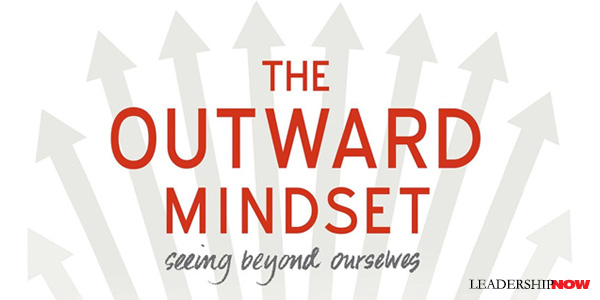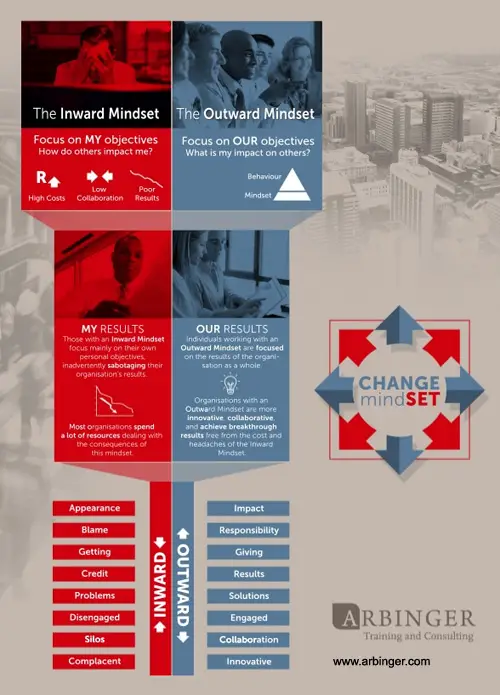 |
 |
03.27.17

The Outward Mindset: Seeing Beyond Ourselves
A An outward mindset doesn’t come naturally. We have to consciously change how we think about others. In The Outward Mindset, the Arbinger Institute reports that “the biggest lever for change is not a change in self-belief but a fundamental change in the way one sees and regards one’s connections with and obligations to others.” People and organizations get stuck when they have an inward mindset because when we are focused on ourselves and our needs, our reality becomes distorted. An inward mindset limits our possibilities and negatively affects our behavior and thus our relationships. Arbinger reminds us that an inward mindset and introspection are not the same thing. “One can introspect in a self-centered way, which would indicate an inward mindset. However, a person also can introspect about one’s connections with others, which is the very essence of what we are calling outwardness. Sometimes it is helpful to look inside to see how one is connected with what is outside.” Moving from an inward mindset to an outward mindset is more than a surface adjustment or behavioral change alone. It requires a change in how we see and think about others. How we see and respond to others is not so much about them as it is a reflection of what is going on inside of us. We often fixate on other’s shortcomings so we don’t have to deal with our own. Inward-mindset people and organizations do things. Outward-mindset people and organizations help others to be able to do things.” It is possible to be an inward-mindset person or organization masquerading as an outward-mindset person or organization if you aren’t paying attention to the needs, objectives, and challenges of those you are supposedly doing the work for. Whose needs are your primary focus? Arbinger has discovered that those who consistently work with an outward mindset follow a pattern. They:
An outward-mindset begins with you. “While the goal in shifting mindsets is to get everyone turned toward each other, accomplishing this goal is possible only if people are prepared to turn their mindsets toward others with no expectation that others will change their mindsets in return. This capability—to change the way I see and work with others regardless of whether they change—overcomes the biggest impediment to mindset change: the natural, inward-mindset inclination to wait for others to change before doing anything different oneself.” This, of course, is true leadership. To begin:
Take the Mindset Audit online.  
Posted by Michael McKinney at 03:21 PM
|
BUILD YOUR KNOWLEDGE
 

How to Do Your Start-Up Right STRAIGHT TALK FOR START-UPS 
Grow Your Leadership Skills NEW AND UPCOMING LEADERSHIP BOOKS 
Leadership Minute BITE-SIZE CONCEPTS YOU CAN CHEW ON 
Classic Leadership Books BOOKS TO READ BEFORE YOU LEAD |